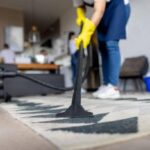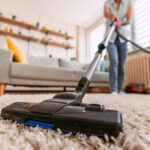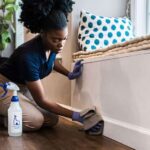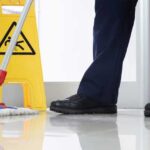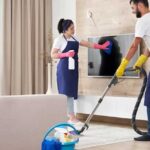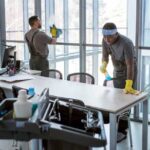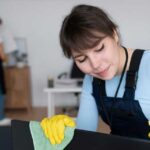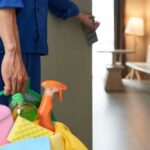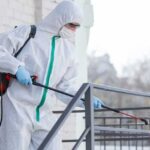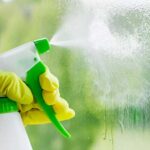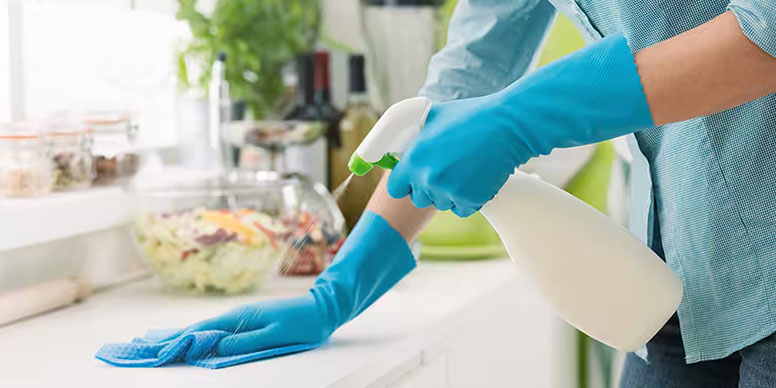Keeping our homes clean and germ-free is very important for ourselves and our family’s health. There are a lot of disinfectants available in the market, but not all of them are natural. Most of the disinfectants you get in the market these days are full of harmful chemicals that can have adverse effects on your health and well-being. Though these chemical cleaners serve their core purpose of getting rid of spots, dirt, dust, and debris, they are still harmful to you and your loved ones. So how do you clean and disinfect your home using DIY disinfectant sprays? Let’s explore them together.
Why choose natural DIY disinfectants?
Natural disinfectants, because they can be made naturally, will not have any kind of adverse effect on you. But if we talk about commercial disinfectants available in the market, which contain a lot of chemicals that can be harmful for not only your health but also the environment, natural disinfectants, on the other hand, have a lot of benefits.
Safety:Â Natural DIY disinfectants are gentle on your skin, so they are especially great for hypoallergenic people. They are made from natural materials, so while cleaning, if you inhale some of them accidentally, it won’t cause any harm to your respiratory system.
Environmentally Friendly:Â Since natural homemade DIY disinfectant cleaners are made at home with natural materials, they are environmentally friendly. They do not have any harmful or negative impact on the environment, like a lot of commercial disinfectants do when made in factories.
Cost-Effective: Since homemade disinfectants are made at home, the ingredients used in them are what we can normally find in our pantries, such as baking soda and vinegar, which are pretty cheap, and that’s why they are cost-effective. You won’t need to pay extra to buy disinfectant.
Customizability:Â When you make these DIY disinfectants at home, you can also customize them the way you want. For example, adding a particular scent that you like or choosing ingredients that you prefer and have readily available in your pantry
Here are a few recipes for your homemade DIY disinfectant spray.
Vinegar and Water DIY Disinfectant Spray Cleaner
The most common and yet quite effective disinfectant that we all know about. Vinegar and water solutions are great for removing most bacteria, viruses, and molds. The acid in vinegar will act as a disinfectant in this solution. The easiest way to use this is to pour equal parts of vinegar and water mixture into a spray bottle.
Lemon and Baking Soda Disinfectant Spray Cleaner
Lemon and Baking Soda Cleaner is another disinfectant cleaner that is quite effective. The acidity in lemon kills bacteria and virus growth, while baking soda fizzles and removes stains and dirt. This disinfectant also leaves a nice, lemony-clean scent.
Essential Oils for a DIY Disinfecting Cleaner
Essential oils are packed with antibacterial and antiviral properties, making them an effective disinfectant. You can use any essential oils, like tea tree oil, lavender, eucalyptus, and peppermint, as your disinfectant. Mix any essential oil with vinegar and water in the cleaner. Mix equal parts water, vinegar, and a few drops of essential oil, depending on how strong you want the scent from the essential oil to be.
Hydrogen Peroxide DIY Disinfectant Cleaner
The hydrogen peroxide solution is an effective cleaner for the kitchen. It is great for cleaning and disinfecting your countertops, various kitchen surfaces, and cutting boards. You can use it as is, or you can dilute it in water.
Rubbing Alcohol DIY Disinfectant
Rubbing alcohol can be used to disinfect and clean a range of things at home. It is quite versatile. To make rubbing alcohol disinfectant, mix it with water. The ratio of rubbing alcohol to water should be 70–30 for a perfect cleaning solution.
How to Make Your Homemade DIY Disinfectant Cleaner?
Here is a general process for making these great homemade disinfectants.
- The first step is to gather all your ingredients, depending on which cleaning solution you want, like vinegar, baking soda, lemon juice, essential oils, or hydrogen peroxide.
- Follow the recipe given above with each disinfectant solution. The most common ratio is equal parts water and vinegar. Remember to use a 70-to-30 ratio while making rubbing alcohol and water solutions. Be careful while adding essential oils to your water and vinegar solution, as they have a very strong scent even in a few drops.
- Using a clean spray bottle to hold your disinfectant can make your cleaning more convenient. Remember to clean the bottles thoroughly before using them and label them to avoid any future confusion.
- After preparing your solution, shake the mixture well so that they are well combined, and you will be ready to clean.
Additional Tips for Effective Disinfection
- Follow the recommended contact times for proper disinfection. Since they have no chemicals to speed up the process, it can take a few minutes of contact with the surface to get your job done properly.
- These can be used to remove mold and mildew, but you might need a scrub brush or microfiber cloth to clean them properly and effectively.
- Although these disinfectants do clean up most of the germs and bacteria, they do not work for everything. So, if you have any specific kind of cleaning job, you might like to research some other disinfectants and methods.
Making your own natural disinfectants at home using natural ingredients is a choice for you, keeping you away from the side effects of harsh chemical cleaning products. Natural disinfectants are a life savior as they are safe to use and clean without causing any damage to you or your surroundings. They are packed with a lot of benefits, such as being cost-effective, environmentally friendly, and having less chemical intake. They are very easy to make as well. The ingredients that are used to make these products are common ingredients that you might require on a day-to-day basis at home. For most of them, you just need to combine a few ingredients from your kitchen in the correct ratio, and you are done. When you use these natural disinfectants, you know that you are not only protecting your family from those harmful chemicals but also saving the planet.

